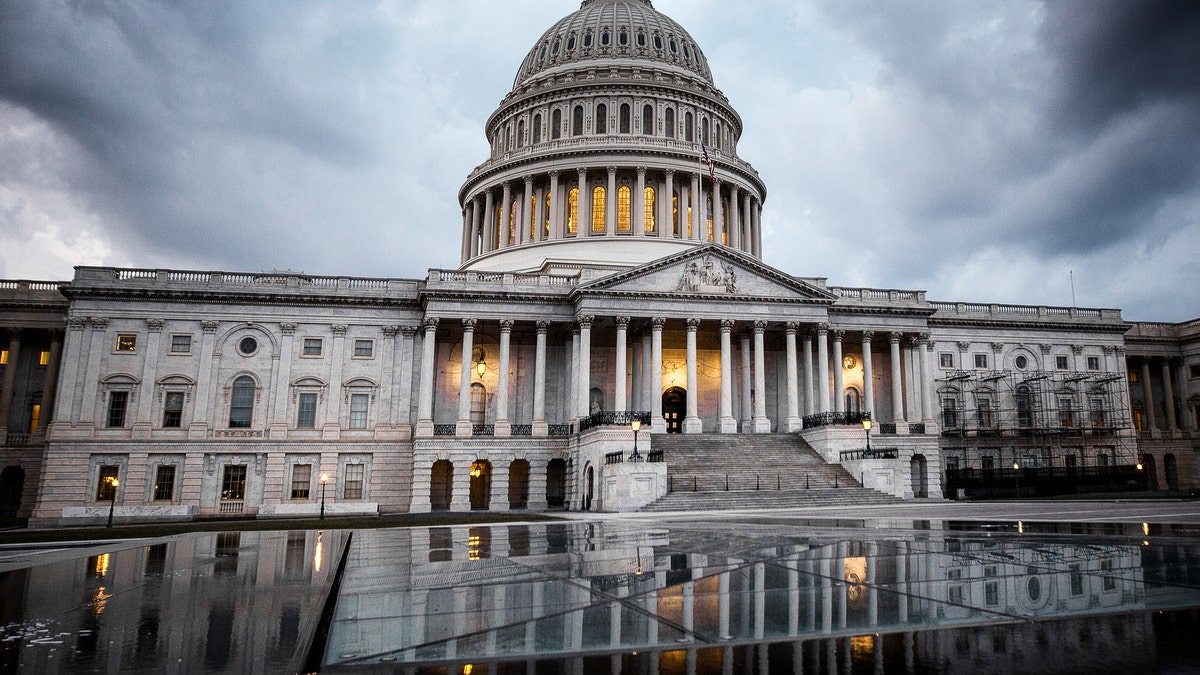
The United States Capitol Building (iStock)
Our intelligence community and law enforcement professionals have worked tirelessly to keep us safe since the horrific events of September 11, 2001. Thanks to these efforts we’ve come a long way when it comes to securing the homeland. Yet today, as threats continue to grow abroad, terrorists remain dead set on infiltrating our country and striking us here at home. The threat is persistent, adaptive, and undeniable.
For example, by one estimate, the Islamic State of Iraq and Syria (ISIS) has planned, conducted, or inspired more than 180 plots against the West, and America has been the number one target. Military action against Al Qaeda and its affiliates has hampered their operations, but the group remains dedicated to our destruction and continues to plot against us and our allies from their safe havens in the Iraq-Syria warzone, Yemen, North Africa, and the Afghanistan-Pakistan border zone. Federal law enforcement authorities have even recently arrested members of the Iranian-backed terrorist group Hezbollah—whose presence in Syria grows stronger by the day, threatening our ally, Israel, and destabilizing the region—for raising money in the United States.
To face these challenges head-on, I am leading a bipartisan Task Force on Denying Terrorists Entry into the United States. The Task Force’s responsibility is to identify common-sense security improvements we can make to ensure that terror suspects do not slip into the United States undetected. Among other things, this Task Force will investigate the key pathways by which extremists might enter our nation: manipulating our lawful visa system, exploiting the visa waiver program, posing as refugees or asylum seekers, and entering the country illegally.
Most people forget that every single one of the terrorists who attacked the United States on 9/11 entered the United States legally using non-immigrant visas as tourists, businessmen, or students. Some of them even overstayed their visas, breaking our laws before killing thousands. And more recently, one of the San Bernardino terrorists entered the United States using a “fiancée visa.”
Of course, the United States is a nation of immigrants, and allowing people to come here lawfully facilitates important cultural and economic exchanges. We cannot, however, tolerate our enemies taking advantage of these programs to strike us at home. As a result, strong oversight of these programs is key to ensuring terrorists do not abuse them.
It’s also worth remembering that we aren’t completely isolated from the terrorist threat to our allies in Europe. The recent attacks in London, Paris, Brussels, Nice, and Berlin highlight the very real threat in Europe and raise concerns about the ease of travel between our nation and others.
Today, many European countries participate in the Visa Waiver Program (VWP), which allows Americans to travel easily to those countries and vice versa. The VWP is great for American businesses and it can actually help strengthen national security in some cases by improving information sharing between the United States and our allies. At the same time, we have to work very hard to ensure this program does not help violent extremists enter our country.
And when it comes to refugees, that threat is very real. Indeed, we know that ISIS exploited refugee flows to send operatives to Europe prior to the Paris attacks in 2015. That same year, the National Counterterrorism Center said that it had identified individuals with ties to terrorist groups in Syria attempting to gain entry to the United States through our refugee program.
Although America has long welcomed oppressed and endangered people from all over the world and it is morally right that we continue to do so, we must also be vigilant and guard fervently against efforts by extremists to take advantage of our hospitality and kindness.
Finally, although we are not aware of terrorist infiltration through an illegal crossing of our land or maritime borders, the unfortunate truth is that these borders are troublingly porous. And the terrorists know it: a couple of years ago, ISIS supporters talked openly on social media about infiltrating our southern border, an issue that now-DHS Secretary Gen. John Kelly indicated he was “deeply concerned” about.
As we close legal pathways by which terrorists enter the homeland, these groups will adapt and pursue alternative methods of targeting our nation, our people, and our economy. In fact, the truth is the easiest way for terrorists to reach across our borders today is by exploiting our increasing reliance on technology.
Given all this, it is clear to me that preventing terrorists from entering the United States must be a top priority for Congress, and it is one we can pursue aggressively without hampering businesses or the individual rights of Americans. We also have to ensure that the private sector and government are able to collaborate to deny terrorists the ability to exploit our digital borders.
In doing so, my sincere plan is to keep the work of this Task Force above partisan politics. This is not about a particular Executive Order or government policy, it’s about a long-standing threat to our nation that we can and must approach in a thoughtful, bipartisan manner. After all, providing for the common defense is our first and foremost Constitutional duty, one we cannot outsource to the executive branch. The time has come for Congress to tackle terror.
Mike Gallagher represents Wisconsin’s 8th District, serving on the Homeland Security and Armed Services Committees in the House of Representatives. Before his time in Congress, he spent seven years on active duty as a Marine Corps counterintelligence-human intelligence officer, deploying twice to Al Anbar Province, Iraq.








































